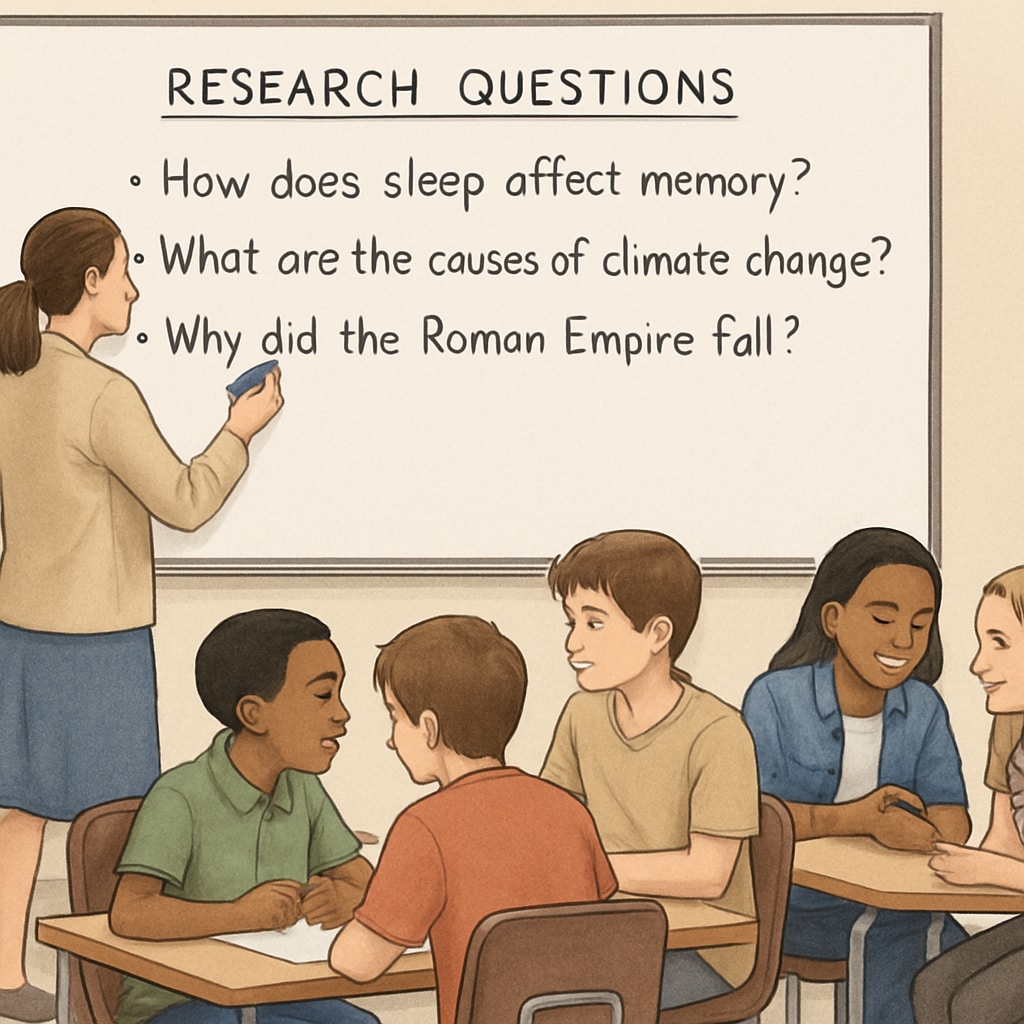Formulating effective research questions is at the core of inquiry-based learning, especially in the K12 education setting. Teachers and students alike benefit from understanding how to create focused, clear, and meaningful research questions that inspire exploration and critical thinking. This article delves into the characteristics of strong research questions, outlines a practical step-by-step process, and presents real-world examples to illustrate their impact in fostering a deeper understanding of the world around us.
What Makes a Good Research Question?
A strong research question serves as the foundation for meaningful inquiry. It should be specific, open-ended, and aligned with the learning objectives. Additionally, it must be both challenging and achievable within the given timeframe. For example, instead of asking a broad question like “What is climate change?” a more effective question could be “How does climate change impact agricultural practices in specific regions?”
Key characteristics of a good research question include:
- Clarity: The question is clearly stated and free of ambiguity.
- Focus: It targets a specific issue or concept rather than being overly broad.
- Open-endedness: It encourages exploration and avoids simple yes/no answers.
- Relevance: The question relates to the subject matter and sparks curiosity.

Steps to Formulate Effective Research Questions
Creating a research question is a process that requires intention and careful thought. Below are five structured steps to help both teachers and students develop impactful questions:
- Identify the Topic: Begin by choosing a broad subject area of interest. For example, “renewable energy” or “the impact of technology on education.”
- Narrow the Focus: Break down the topic into smaller, manageable parts. For instance, under “renewable energy,” you might focus on “solar energy adoption in rural areas.”
- Conduct Preliminary Research: Gather background information to understand existing knowledge and identify gaps. This step ensures the question is relevant and meaningful.
- Frame the Question: Use open-ended language to craft the question. For example, “What are the barriers to adopting solar energy in rural communities, and how can they be overcome?”
- Evaluate and Refine: Assess the question for clarity, focus, and feasibility. Refine it as needed to ensure alignment with learning objectives.
By following these steps, students are more likely to formulate research questions that not only address their academic requirements but also ignite their curiosity and passion for learning.
Practical Applications in K12 Classrooms
The process of developing research questions can be seamlessly integrated into various subjects and grade levels. Below are some examples of how this can be applied:
- Science: “How do different soil types influence plant growth?”
- History: “What were the economic impacts of the Industrial Revolution on rural communities?”
- English: “How does the use of symbolism enhance the themes in [a specific novel]?”
In addition, group projects and peer review sessions can be used to refine research questions collaboratively, fostering teamwork and diverse perspectives.

Conclusion: Empowering Inquiry and Critical Thinking
Effective research question formulation is a critical skill that empowers students to think critically, solve problems, and engage deeply with their studies. By understanding the characteristics of strong questions and following a structured process, educators can help their students unlock their full potential as curious, lifelong learners. As a result, students not only enhance their academic performance but also develop the skills necessary to navigate and contribute to an increasingly complex world.
For further reading on the importance of inquiry-based learning, visit Inquiry-based learning on Wikipedia or explore Critical thinking on Britannica.


